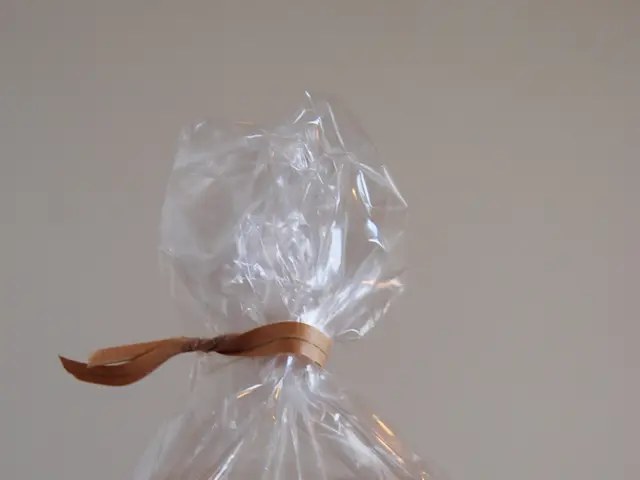Garden Privacy: Fences or Hedges - Which Provides Optimal Privacy in Landscape Design? Landscape Designers Arbitrate the Controversy
Privacy Solutions in Landscaping: A Comparison of Fences and Hedges
When designing a home's exterior, the choice between fences and hedges can often prove challenging. Both options offer unique advantages and potential drawbacks depending on one's landscaping needs and preferences. To help alleviate the decision-making process, we consulted experts in the field for their insights.
Fences
Fences provide an instant solution for privacy, offering immediate coverage whether constructed from materials such as wood, vinyl, metal, or composite. With various styles to choose from, including solid board, shadowbox, and metal designs, fences can be tailored to complement diverse architectural styles.
One of the benefits of fences is their durability, especially when crafted from composite or metal materials. These options necessitate minimal maintenance, making them a low-upkeep choice. However, it is essential to note that fences can prove costly, particularly when constructed from more expensive materials like composite or metal. Additionally, some materials may exhibit less desirable qualities over time; for instance, vinyl may crack or fade, while composite fences may lack a natural aesthetic.
Another disadvantage of wooden fences is their susceptibility to rot and warping, which necessitates regular maintenance to ensure longevity. While metal and composite fences are more resilient in this regard, they often command higher price points.
Hedges
Hedges offer a more natural, living barrier that evolves over time, seamlessly integrating with the surrounding landscape. Not only do they provide privacy, but they also serve as attractive habitats for local wildlife, enhancing biodiversity. Hedges are highly versatile; they can be shaped into formal hedges or left informal to suit various design preferences. Additionally, dense hedges can reduce noise levels by up to 10 decibels.
On the downside, hedges require regular pruning and maintenance to maintain their shape and density. Unlike fences, which provide immediate privacy, hedges take time to mature and reach their maximum potential in terms of privacy and noise reduction. Furthermore, depending on the type and growth rate, hedges may not offer uniform, year-round privacy.
Making the Choice
Ultimately, the decision between installing a fence or planting a hedge boils down to personal preferences, budget, and specific landscaping needs. While fences offer instant privacy at a potentially higher cost, they often lack the organic appeal that characterizes hedges. In contrast, hedges provide a natural, dynamic privacy solution that enhances local biodiversity but requires patience and consistent upkeep.
For space-constrained gardens, fences may be the preferred choice due to their ability to handle tight spaces effectively. However, in larger gardens, where budget and time are less of an issue, a hedge can serve as a beautiful, long-lasting addition to the outdoor space. As with any landscaping decision, it is essential to take stock of one's available resources and prioritize accordingly.
Relevant Products
- Wassif Garden Screen, a compact acacia wood screen from La Redoute, ideal for small gardens seeking instant privacy.
- Lippa Bamboo Room Divider Panel, ideal for Japanese gardens and offering thorough screening, can be found on Wayfair.
- NÄMMARÖ, an effortlessly charming decorative screen from IKEA, suitable for trailing vines.
For those seeking to combine the privacy benefits of a fence with the natural appeal of a living barrier, planting vines to cover a fence might be the perfect compromise, offering a verdant, visually appealing solution.
Our favorite pick for a vine to cover a fence? Star jasmine, a fast-growing, fragrant vine whose abundant white flowers add a floral touch to any home.
When considering the integration of art and lifestyle into outdoor-living spaces, the Wassif Garden Screen, a compact acacia wood screen, could be a thoughtful addition to small gardens, providing instant color and privacy. Inventive gardeners might even opt to incorporate Lippa Bamboo Room Divider Panels, perfect for Japanese gardens, as a sustainable solution for privacy and decor. Nämmaro, an appealing IKEA screen, offers the potential for eco-friendly vine growth, contributing to the home-and-garden's sustainable-living philosophy.
For a balance between the structural advantages of a fence and the natural beauty of a hedge, one could consider adorning their fence with colorful, fast-growing vines like star jasmine, accentuating both privacy and the richness of home-and-garden decor. These charming vines not only provide a delightful visual element but also contribute to the integration of gardening into a harmonious home-and-garden lifestyle. In the end, the artful arrangement of color, furniture, and decor elements can transform any space into an inviting, welcoming haven.







